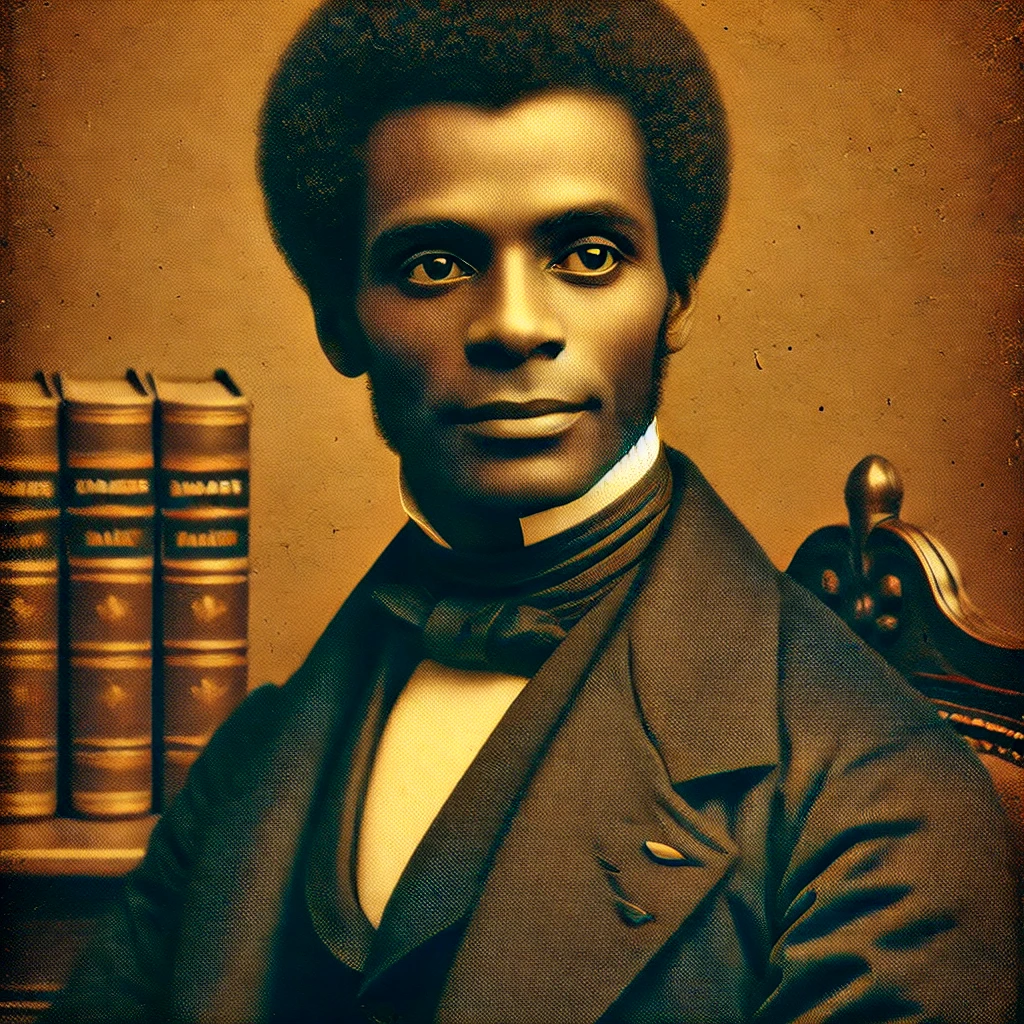Blog
Blog - Where you can find Hot Topics about news, press releases, seek out articles black-owned businesses to support, and absorb valuable life lessons from successful black entrepreneurs. Remain informed and empowered with our commitment to black news, celebrating black entrepreneurship, and fostering community development.

Edward Wilmot Blyden: The Father of Pan-Africanism
Edward Wilmot Blyden (1832–1912) was a scholar, diplomat, educator, and writer whose work and ideas laid the foundation for Pan-Africanism. Born in Saint Thomas, a Danish colony in the Caribbean, Blyden’s intellectual legacy transcended geographic boundaries, inspiring movements for African liberation and unity across the globe. His pioneering thoughts on race, identity, and the empowerment of African people continue to resonate today.
Early Life and Education
Blyden was born into a free black family in Saint Thomas. From an early age, he demonstrated a remarkable aptitude for learning, which led him to aspire to a theological education in the United States. However, Blyden faced racial discrimination that thwarted his admission to American universities. Undeterred, he emigrated to Liberia in 1851, a West African nation founded by freed African Americans, where he found an environment conducive to his ambitions and ideals.
In Liberia, Blyden immersed himself in academic and cultural pursuits. He studied at Alexander High School in Monrovia and later became a prominent intellectual and public servant. His experience in Liberia shaped his lifelong advocacy for African empowerment and unity.
Advocacy for African Identity
Blyden is best known for his philosophy of African self-reliance and cultural pride. At a time when European colonization and racism dominated global discourse, Blyden challenged narratives of African inferiority. He argued that Africans had their own rich histories, cultures, and traditions that were equal to those of any other civilization.
His writings, such as Christianity, Islam and the Negro Race (1887), examined the roles of religion and education in African societies. Blyden viewed Islam as a unifying force in Africa, contrasting it with the missionary-driven Christianity that often aligned with colonialism. He advocated for an Afrocentric approach to education, urging Africans to embrace their heritage and reject European cultural domination.
The Father of Pan-Africanism
Blyden’s vision of a united and self-determined Africa made him a precursor to modern Pan-Africanism. He believed in the potential of Liberia and Sierra Leone as centers of African regeneration and called for the repatriation of African descendants from the diaspora to help build these nations.
His work influenced later Pan-Africanist leaders like W.E.B. Du Bois, Marcus Garvey, and Kwame Nkrumah. Blyden’s call for unity among African people and his celebration of African identity became cornerstones of the Pan-Africanist movement.
Diplomatic and Educational Contributions
Blyden held numerous positions of influence, including Liberian Secretary of State, Minister of the Interior, and ambassador to Britain. He used these roles to promote Liberia as a beacon of African self-governance and to foster international understanding of African issues.
As an educator, Blyden founded institutions aimed at empowering Africans through education. He believed that education should be rooted in African culture and history, preparing students to lead their communities and nations.
Legacy
Edward Wilmot Blyden’s ideas remain a source of inspiration for those seeking justice, equality, and unity for African people worldwide. His insistence on the dignity and worth of African identity paved the way for movements that continue to challenge racism and colonialism.
Today, Blyden is celebrated as a trailblazer who dared to imagine an Africa free from subjugation and filled with pride in its own heritage. His writings and actions remind us of the power of intellectual resistance and the enduring importance of cultural pride in the quest for liberation.
By championing African identity and unity, Edward Wilmot Blyden left a legacy that has shaped the course of African and African diasporic history. His life’s work reminds us of the transformative power of education, culture, and an unwavering commitment to justice.

Advertise on SBO
Add your business to SBO
Make sure to add your business to SBO
Show your support by sharing this article.
Make Sure To Follow SBO
SBO Facebook SBO X SBO Instagram SBO LinkedIn SBO YouTube SBO Pinterest SBO TikTok




